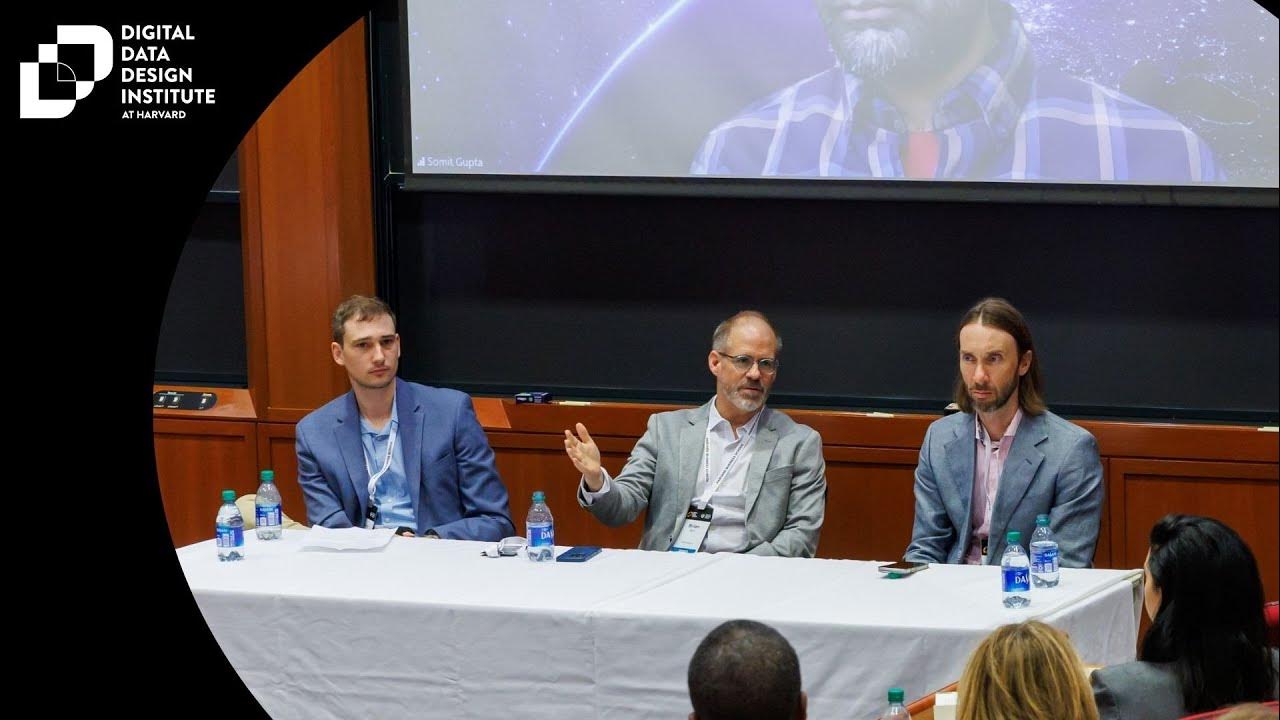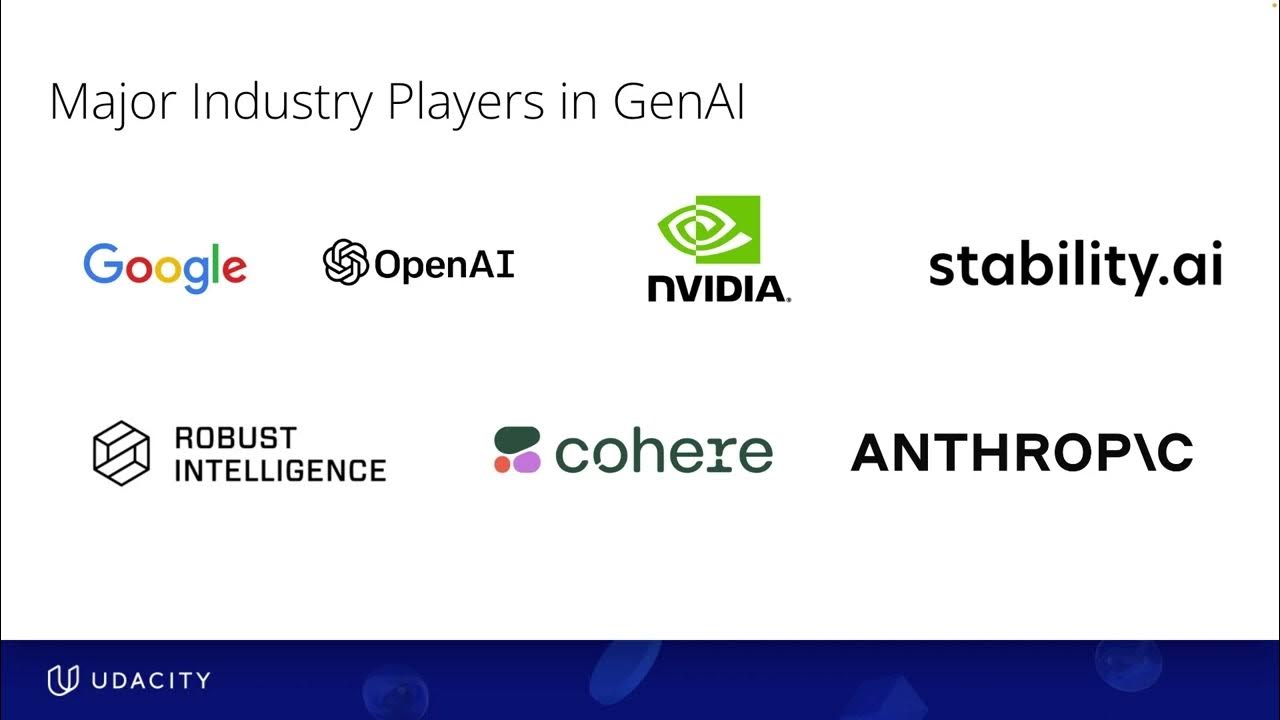The Future of AI Music
Summary
TLDRThis video delves into the impact of generative AI on the future of music, addressing the culture war around AI and its increasing presence in the industry. Despite ethical concerns like intellectual property and data ownership, AI's convenience ensures its staying power. The video argues AI's potential lies in its misuse and 'artificial stupidity,' which can lead to novel artistic expressions. It also touches on AI's role in exploring our post-truth world and the promise of a new musical revolution, emphasizing that humans will continue to create art with the aid of AI tools.
Takeaways
- 🎵 Generative AI is making significant changes to the music industry, similar to how past technologies like the electric guitar or synthesizers have done.
- 💡 The creator feels that AI music is still mostly bland because people haven't fully figured out how to break and creatively use the technology yet.
- 🧠 AI isn't truly creative on its own; it can only imitate. However, humans can use AI creatively, much like how collage artists use existing materials to create something new.
- 🎤 The ethical implications of AI in music, such as intellectual property and biases, are complex but are unlikely to stop the technology's widespread adoption.
- 🎶 Some musicians are already creatively collaborating with AI, such as Everything Everything, who used AI to help generate lyrics for their album 'Raw Data Feel'.
- 🎨 AI's potential lies in its ability to create interesting and novel outcomes, especially when it fails or makes mistakes, rather than when it works perfectly.
- 🤖 AI-generated art is evolving, with more artists and musicians starting to explore the eerie and uncanny qualities that come from AI's 'mistakes.'
- 📚 Historical examples, like John Philip Sousa's concerns about recording technology, show that technological advances in music often lead to moral panics but also new creative movements.
- 🎧 The future of AI in music may involve blending AI with traditional forms of creativity to create new genres or musical experiences.
- 🌍 Despite concerns, humans will continue to create art using new tools like AI, and future generations will likely become even more adept at using and breaking these technologies in creative ways.
Q & A
What is the main topic of the video script?
-The main topic of the video script is the impact of generative AI on the future of music, including its potential, ethical considerations, and how it is changing the music industry.
Why did the author initially decide to hold back on creating the video?
-The author initially decided to hold back on creating the video because a culture war broke out around AI, and they were tired and chose to sit it out.
What is the author's stance on AI music being creative?
-The author believes that AI, in itself, cannot be creative in the same way humans are, but it can be used creatively by humans to produce interesting outcomes.
What ethical questions does the author mention regarding AI music?
-The author mentions ethical questions such as intellectual property, carbon footprints, data ownership, and biases baked into AI.
How does the author relate the advent of AI music to historical technological advancements in music?
-The author relates AI music to historical technological advancements by stating that every major genre and cultural shift in modern music history is tied to the prevailing musical technology of the day, such as the digital audio workstation, sampler, synthesizer, and electric guitar.
What examples does the author provide of artists using AI in their work?
-The author provides examples of artists like Everything Everything, Holly Herndon, Grimes, and others who have experimented with AI in creating music, lyrics, and even album covers.
What does the author suggest as a way to make AI music less bland?
-The author suggests that to make AI music less bland, artists should break the technology, use it in unconventional ways, and explore its failures and quirks to create something more interesting and novel.
How does the author view the future of AI in music?
-The author views the future of AI in music as a potential musical revolution, where new generations will grow up with AI tools as everyday items and use them to express themselves and explore the human experience.
What is the author's opinion on the ethical concerns potentially slowing down the adoption of AI?
-The author believes that ethical concerns have never really stopped the march of technological progress and that the convenience AI brings will likely lead to its widespread adoption despite ethical snags.
What advice does the author give to those interested in the ethical questions around AI music?
-The author recommends exploring videos by Cleo Abra or Mike the Snare for those interested in the ethical questions around AI music.
How does the author describe the role of AI in the creation of a new Beatles song?
-The author describes AI noise cleanup technology as the tool that gave us a new Beatles song, indicating its use in post-production to clean up sounds.
Outlines

This section is available to paid users only. Please upgrade to access this part.
Upgrade NowMindmap

This section is available to paid users only. Please upgrade to access this part.
Upgrade NowKeywords

This section is available to paid users only. Please upgrade to access this part.
Upgrade NowHighlights

This section is available to paid users only. Please upgrade to access this part.
Upgrade NowTranscripts

This section is available to paid users only. Please upgrade to access this part.
Upgrade NowBrowse More Related Video

Udio Exposed: Massive Lawsuit Could End AI Music | Court Document Breakdown

The Activision Leaks Came True, Key Creatives Are Quitting

Why Spotify Is Quietly Ruining the Music Industry

Experimentation with Generative AI

U8-04 V2 Wichtige Akteure der Branche V3

Create winning shopping experiences with generative AI
5.0 / 5 (0 votes)